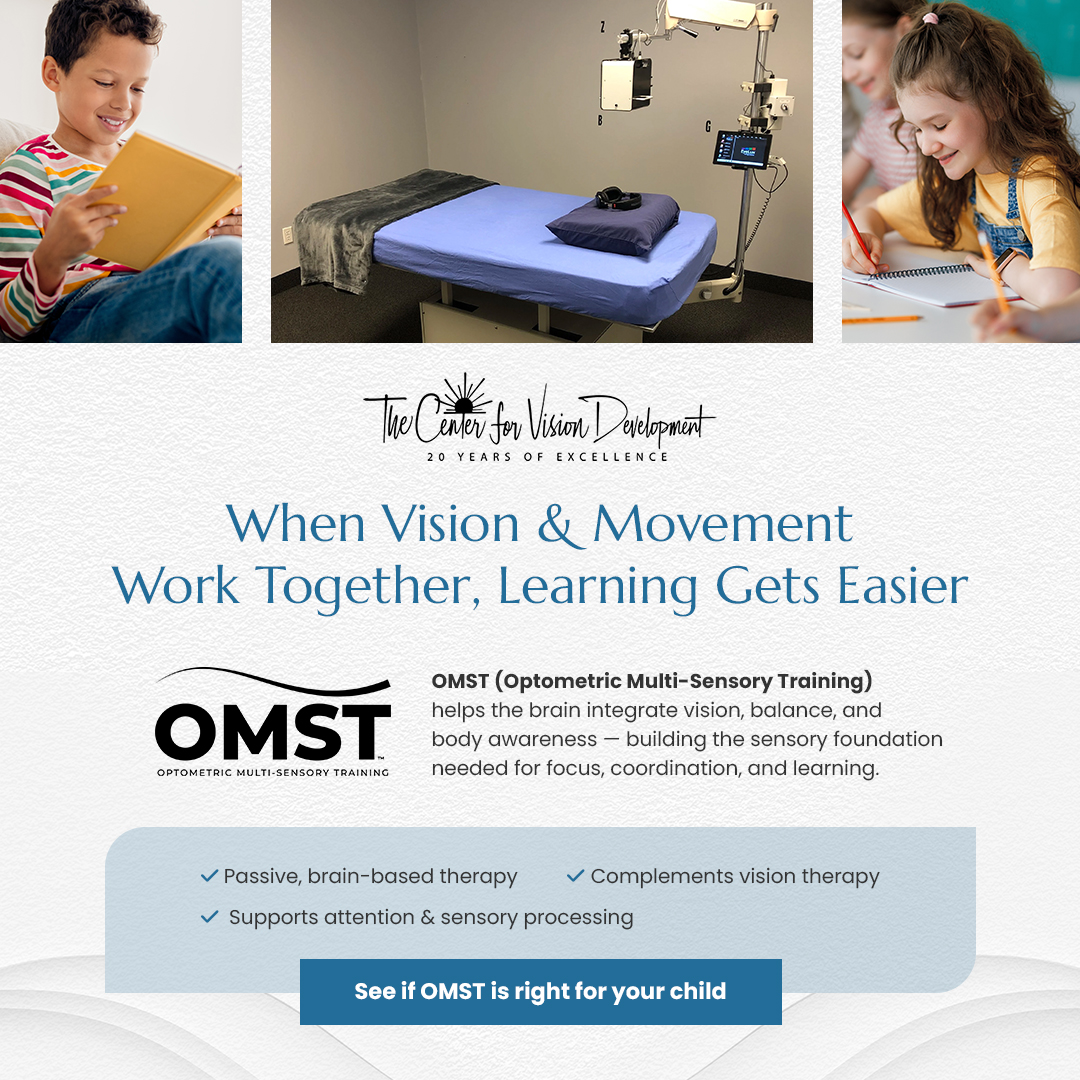
Visual problems are common in children with Autism Spectrum Disorder (ASD), but they often go undiagnosed. Many autistic behaviors can be attributed to reduced vision or visual skills. Vision therapy is an effective treatment method that enhances visual skills and neurological connections between the eyes and brain.
Read on as a vision therapy optometrist Annapolis, MD talks about autism, vision problems that often accompany autism, and how vision therapy can help.
Autism and Vision Problems
Autism and vision problems are closely linked, and children with autism spectrum disorder (ASD) often experience various visual issues. These problems can include:
- Refractive errors
- Strabismus (eye turn)
- Amblyopia (lazy eye)
- Misalignment of the eyes
- Poor vision in one or both eyes
- Eye movement disorders
Visual symptoms of autism may manifest as:
- Difficulty maintaining eye contact
- Fleeting peripheral glances
- Side viewing
- Staring at spinning objects or light
- Reduced visual attention span
How Vision Problems Impact Other Areas
Visual problems in autistic children can have significant effects on various aspects of their development, including cognition, speech, motor skills, and perceptual abilities. Here’s how these vision problems can impact each of these areas:
- Cognition: Visual perception plays a crucial role in cognition, and visual problems in autistic children can affect their cognitive abilities. These abnormalities in visual perception can lead to difficulties in recognizing and interpreting visual information, which may affect their overall cognitive processing.
- Speech: Visual perception is closely linked to speech development, as it helps in the recognition and understanding of facial expressions, lip movements, and gestures. Autistic children with visual problems, such as difficulties in face processing, may struggle with recognizing and interpreting these visual cues, leading to challenges in speech development.
- Motor Skills: Visual perception is essential for the development and coordination of motor skills. Autistic children with vision problems may experience difficulties in hand-eye coordination, spatial awareness, and balance.
- Perceptual Abilities: Autistic children with visual problems may struggle with various perceptual abilities. These perceptual challenges can affect their overall sensory processing, attention, and perception of the surrounding environment.
How Vision Therapy Can Help With Autism
Regular eye exams and consultations with specialized eye doctors are essential for diagnosing and treating visual difficulties in children with ASD. Vision therapy for children with autism often includes personalized programs to enhance visual-spatial organization, peripheral stability, central vision, eye coordination, and visual information processing.
Optometrists who work with children with ASD can provide functional visual evaluations to assess various aspects of the visual system and identify specific visual challenges. These evaluations can help determine the need for vision therapy, which aims to improve visual skills and neurological connections between the eyes and the brain
If you have more questions or wish to schedule a consultation, please don’t hesitate to call us, your local vision therapy optometrist Annapolis, MD, anytime!











